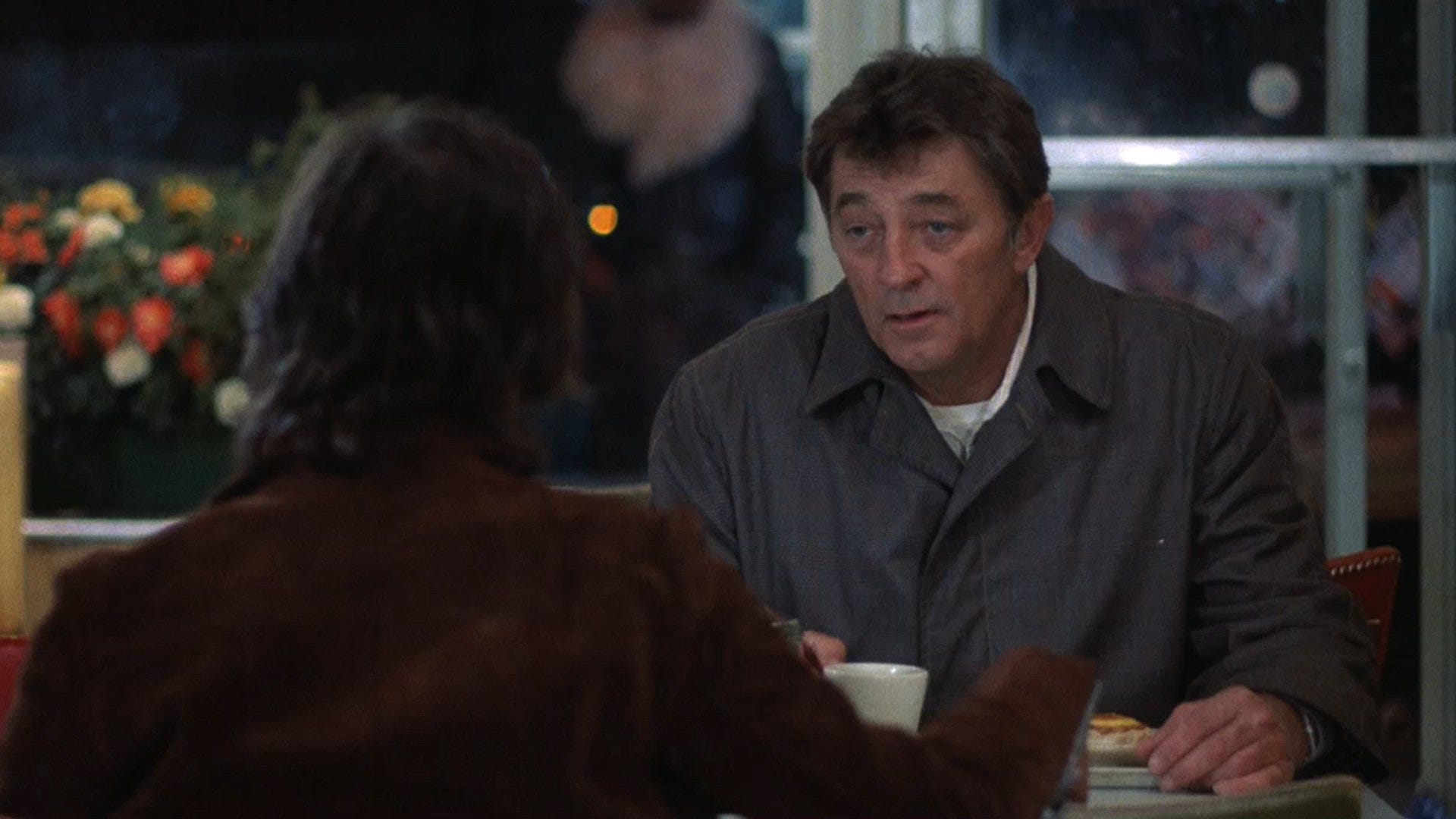
(Robert Mitchum as Eddie Coyle)
Back in 2014, I wrote Eddie Coyle's Friend, about a novelist I greatly admire, George V Higgins. I probably worked harder on that post than on anything else I've written, figuring Higgins deserved it.
I just came across an appreciation of the novel and movie, The Friends of Eddie Coyle by Daniel Moran, writing on Substack and found it quite perceptive and worth a read. Here are some excerpts:
This kind of dialogue may seem easy to write, but anyone who has ever tried knows it’s almost impossible. Here, we get everything we need to know about these two guys and the rules of their worlds in a handful of near-grunts.
I was an English major—sure, things like Eddie Coyle were fun to read, but shouldn’t I be reading more Keats, James, and Shakespeare? I didn’t know that the music found in the works of these writers could also be heard (if faintly) in a book like this one. I’ve since read it several times and I’m always amazed by how the book carries its reader along in a series of conversations that move so quickly yet reward close-reading. The book reads itself to you like a criminal nanny.
Everyone loved the realism, but a more accurate word is “realism.”(1) I have no idea if actual gunrunners are as interesting as the people in these pages or if their dialogue is worth overhearing. I’d bet that it’s not. What’s absolutely realistic, however, about Eddie Coyle is how everybody in it—just like the reader—is constantly negotiating to just get to the next step of what he needs by the end of the day. . . His story—the real realism—is about going to work and being someone in middle management who has to answer to all kinds of people and wants to just get his part of the process complete so he can move on to the next thing. It’s about the guy in Purchasing who won’t sign the form you need so that you can tell the client that yes, everything is in motion, because that guy in Purchasing thinks that you’ve cozied up to the Senior Vice President of Acquisitions for a job that he’s had his eye on for months. It’s about having to speak in a conciliatory tone when trying to wrangle a favor from the guy in the next cubicle.
Peter Yates’s 1973 film is an object lesson in how to faithfully adapt a novel to the screen. It stands with John Huston’s The Maltese Falcon and the Coens’ True Grit as an example of a screenwriter (in this case, Paul Monash) sitting with the novel propped open on his desk so he can type the dialogue word-for-word in screenplay format. Huston’s version of Falcon was the third attempt to adapt it for the screen and the Coens’ True Grit was the second; both of their versions are superior to their predecessors because they knew what was great about the novels and transferred that greatness to the screen.
I have not seen the earlier versions of the Maltese Falcon, but as much as I enjoyed John Wayne in True Grit, the Coen's True Grit is superior.
Coming across this post led me to read more of Moran's work and it is quite good. He's got that thing.
---------------------------------------
(1) In my Higgins post I wrote:
The dialogue Higgins wrote was realistic but it wasn't real. Very few people actually talk like that, or at least they don't talk like that for so long and, at times, he could venture dangerously near Damon Runyon territory. But mostly, Higgins had a knack for cadence, ambiance and simplicity that rang true even if it wasn't actually true.
No comments:
Post a Comment